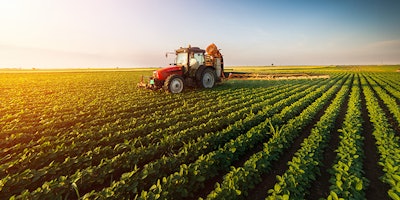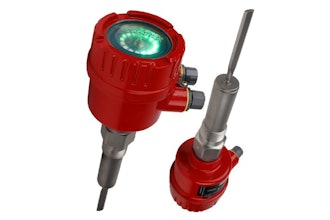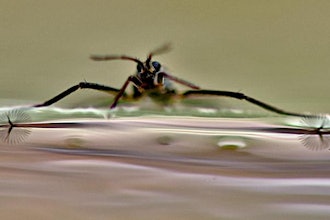
BISMARCK, N.D. (AP) — North Dakota is rescinding one of its new rules for use of the weed killer dicamba on soybean crops next year, but the state isn't bending on an industry request for flexibility on another regulation.
The state Agriculture Department has decided not to require farmers or others who apply dicamba to first notify the agency, but it will maintain a restriction on when it can be sprayed.
Both decisions are in keeping with the overall goal of mitigating herbicide drift that can damage neighboring fields, state Agriculture Commissioner Doug Goehring said.
"I want (applicators) to make sure they're doing it right," he said.
North Dakota's new rules for dicamba use on soybeans expand on new federal labeling requirements prompted by complaints from farmers in several states about crop damage from herbicide drift.
The Environmental Protection Agency in October announced a deal with agribusinesses Monsanto, BASF and DuPont under which dicamba products will be labeled as "restricted use," requiring additional training and certifications for those who use it and limiting when and how it can be sprayed.
North Dakota's Agriculture Department last week announced state-specific rules, including a requirement that people notify the agency before spraying the herbicide. The North Dakota Farm Bureau asked Goehring on Monday to rescind that rule.
"I think it would inhibit some timely applications, and it's just one more thing for producers to worry about," Farm Bureau President Daryl Lies said.
Goehring said he decided to rescind the rule because application information will be available through federal record-keeping requirements, and because he didn't want a state requirement that would amount to an unnecessary headache.
"We want people to be focused on training, be focused on the (application) requirements and not being distracted with making notification," he said.
However, Goehring said the state has good reason for another rule that bans the spraying of certain dicamba formulations on soybeans after June 30 or the crop's first bloom phase, whichever comes first. A violation could carry a potential fine of up to $5,000.
Monsanto has criticized that rule and called for North Dakota officials to be flexible on the cutoff date. Goehring said the state is simply tailoring the federal rules to the state's growing climate.
"The federal label already says no applications can be made after (first bloom). What we're doing is clarifying" when first bloom typically occurs in North Dakota, he said.
Lies said the Farm Bureau won't object to the cutoff date.
"I think our producers will be able to work with that," he said. "I don't think it will be the most convenient in every situation, but we have to trust the science they're using."






















